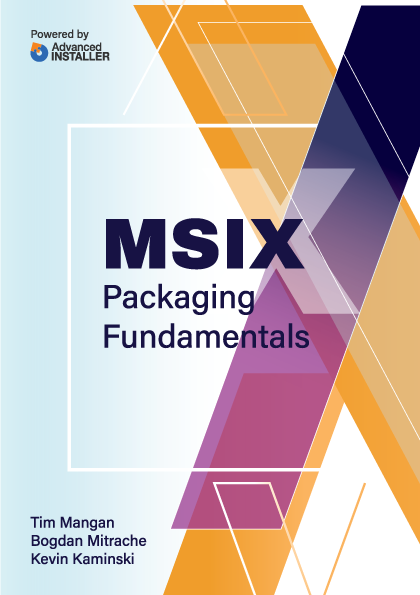Contents
- Digital Signing
- Why should you sign an MSIX package?
- How to sign an MSIX package?
- Where do I get a certificate from?
- How to protect the Certificate with a password
- Certificate Timestamps
- Package Support Framework
- Using the PsfLauncher
- Predefined Fixups
- Applying the PSF
- Config.JSON and Config.XML
- Inspecting Fixups that are in a Package
- Scripting
- MSIX Modification Packages
- Is the MSIX Modification Package the new MST equivalent?
- A deep dive inside the manifest
- How does an MSIX Modification Package work?
- Application Updates
- User Settings and Data Associated with a Package
- Getting Settings and Data Off the Local Profile

User Settings and Data Associated with a Package
As end-users utilize the applications that we package and distribute, they often make changes to the application settings, sometimes altering or creating new data files.
With or without the Package Support Framework, MSIX implements a strategy for redirecting file and registry activity (when supported) to an area of the user’s local profile. This strategy is generally limited to the scope of the structure of the package itself. In practice, writes to areas outside of the package boundary are not redirected at all.
This allows for updates to the settings of a package file to be redirected, even if the app writing a file to the Documents folder is not redirected (unless your package includes files in the Documents folder).
The MSIX redirection is located in the end-users AppData\Local folder, under a subfolder called Packages. Each package installed to the user's device will have a subfolder using the package name. Under this folder, there will be a large number of subfolders, and all the written settings/data.
MSIX redirected file data will be placed under the LocalCache\Local\Microsoft\WritablePackageRoot folder. Notice that even if the app attempts to write to the end-users AppData\Roaming folder, if that folder is included in the package coverage - MSIX will rewrite that file to this folder.
MSIX registry data will be placed in the SystemAppData\Helium folder in the form of .dat files.
Keep in mind that UWP Programs (which can also be MSIX) use the package folder structure and may place additional settings and data files under the RoamingState folder of the package redirection area.
Getting Settings and Data Off the Local Profile
Scenarios like WVD, VDI, and SBC, require that user settings and data be migrated to an area other than the local profile. Additionally, some companies like to have physical desktops set up to support an instant swap-out. This also requires ensuring that these settings and data are redirected to off-box storage.
Traditionally, Roaming Profiles and/or Folder Redirection policies have been used to help with these scenarios. More recently, additional User Environment Management (UEM) products like Microsoft UEV, AppSense, and FsLogix have become popular.
Such additional products can be effective in managing user data and settings when MSIX is in use. There will be situations where the vendor configuration for the MSI version of the application is identical to that of the repackaged MSIX app, and other situations where the UEM product rules will need to be altered to look for the files in this redirected area.